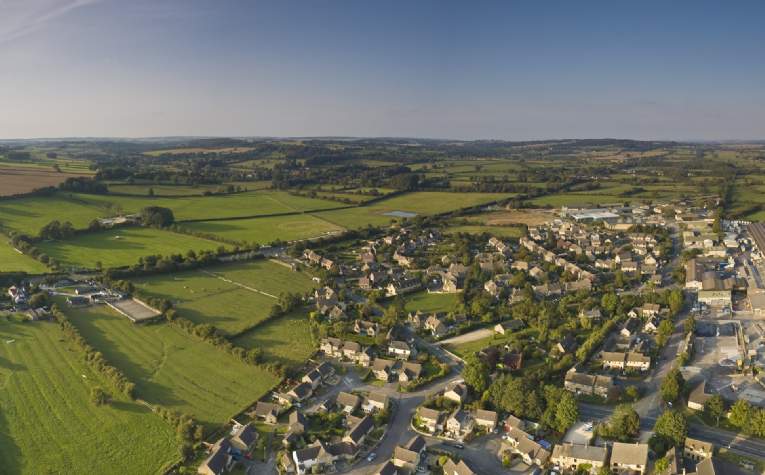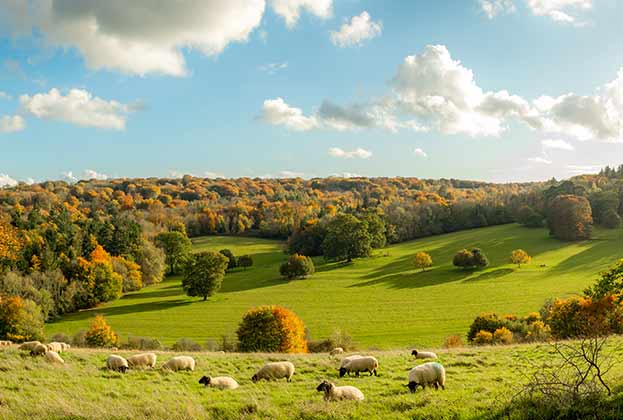Genes provide the blueprint for life. Our cellular machinery takes a look at those blueprints and synthesises the molecules and tissues that make us who we are. That cellular mechanism is fundamentally uncreative, it will only build what it is told to.
So what happens when that genetic blueprint changes? Many of these changes, known as mutations, have no effect. When they do have an effect, it is often to the detriment of the host, but some mutations do make beneficial changes to the organism. That beneficial change gives the affected organism an advantage within its environment, making it more likely to survive, breed and pass on its beneficial traits. This is natural selection.
Humans have sought to influence natural selection for millennia by pairing specific organisms to sculpt them to our needs, known as selective breeding. Despite being a tried and tested technique, it is far from efficient. We have to hope that nature brings about the mutations and characteristics that we desire. In plants, scientists can speed nature up by exposing seeds to radiation to artificially encourage mutations but this approach is still far from precise.
Genetic modification
Genetic modification (GM) is one way to control the process more closely. GM is the process of altering genetic material in a manner that would not naturally occur. This might include taking DNA from one organism and implanting it in another to produce a specific characteristic.
For crops, one characteristic might be the ability to produce its own insecticide. The bacteria Bacillus thuringiensis (Bt) occurs naturally in soils and can produce proteins that are toxic to certain insects. By isolating the relevant genetic material from the bacterium and inserting it into crops, the plant is able to produce these proteins and protect itself from pests.
Despite repeated assurances of its safety, a large proportion of public opinion remains opposed to GM. There are fears that implanted traits may escape into the natural world and disturb pre-existing ecosystems. There are also concerns that products may cause side effects such as allergic reactions or antibiotic resistance.
Genome editing
Fortunately, a middle ground does exist. Genome editing (GE) is far more efficient and precise when compared to selective breeding. It achieves the same outcome as selective breeding but with more reliance on design than chance, significantly reducing the likelihood of unwanted modifications. It also avoids much of the controversy around GM by only modifying genetic material that is native to an organism.
New technologies enable targeting key sections of genetic code, adding, deleting or substituting elements to achieve the desired outcome. That desired outcome could be anything from reducing the requirement for pesticides and fertilisers, improving resistance to extreme weather, or enhancing the crop’s nutritional properties.
This new technology is not just the domain of crops. Scientists have successfully produced a bull calf that was genome-edited as an embryo so that it produces more male offspring. The research is still in its early stages meaning the bull and any offspring will not enter the food chain. This is unlikely to change until the full effect of GE in animals is more thoroughly understood.
What’s the difference?
Scientifically speaking, the difference is huge but legally speaking, the difference depends largely on where you are in the world. Europe treats the two mechanisms as the same and is broadly against them both. In the US, GE plants are not considered to be different from those developed by traditional breeding methods. Indeed, it is not possible to test and distinguish between the two methods. GM is also approved and genetically modified organisms (GMOs) are widely used and consumed.
Here in the UK, our approach is still very European but that could soon change. A government consultation is seeking views on genome editing specifically, as well as genetic engineering as a whole. According to the consultation, Defra believes 'organisms produced by GE or by other genetic technologies should not be regulated as GMOs if they could have been produced by traditional breeding methods'. The consultation could ultimately lead to legislation to amend the definition of a GMO as it applies in England.
The message has caused a mixed response from devolved powers. Scotland’s Secretary for the Rural Economy, Fergus Ewing, has accused the government of '[picking] a fight with the EU' and believes 'it would surely be preferable to wait and work with the EU'. Welsh farming minister Lesley Griffiths agreed that it was important to look at all technologies but also said 'my main concern is around health and safety and I haven’t been reassured'. Northern Ireland’s farming minister, Edwin Poots, seemed to agree with Defra, saying 'we need to close the gaps between ourselves and other places who are delivering greater efficiency'.
The consultation will remain open to responses until 17 March 2021.
Further information

.jpg)
.jpg)

.jpg)
.jpg)
.jpg)
.jpg)
.jpg)
.jpg)
